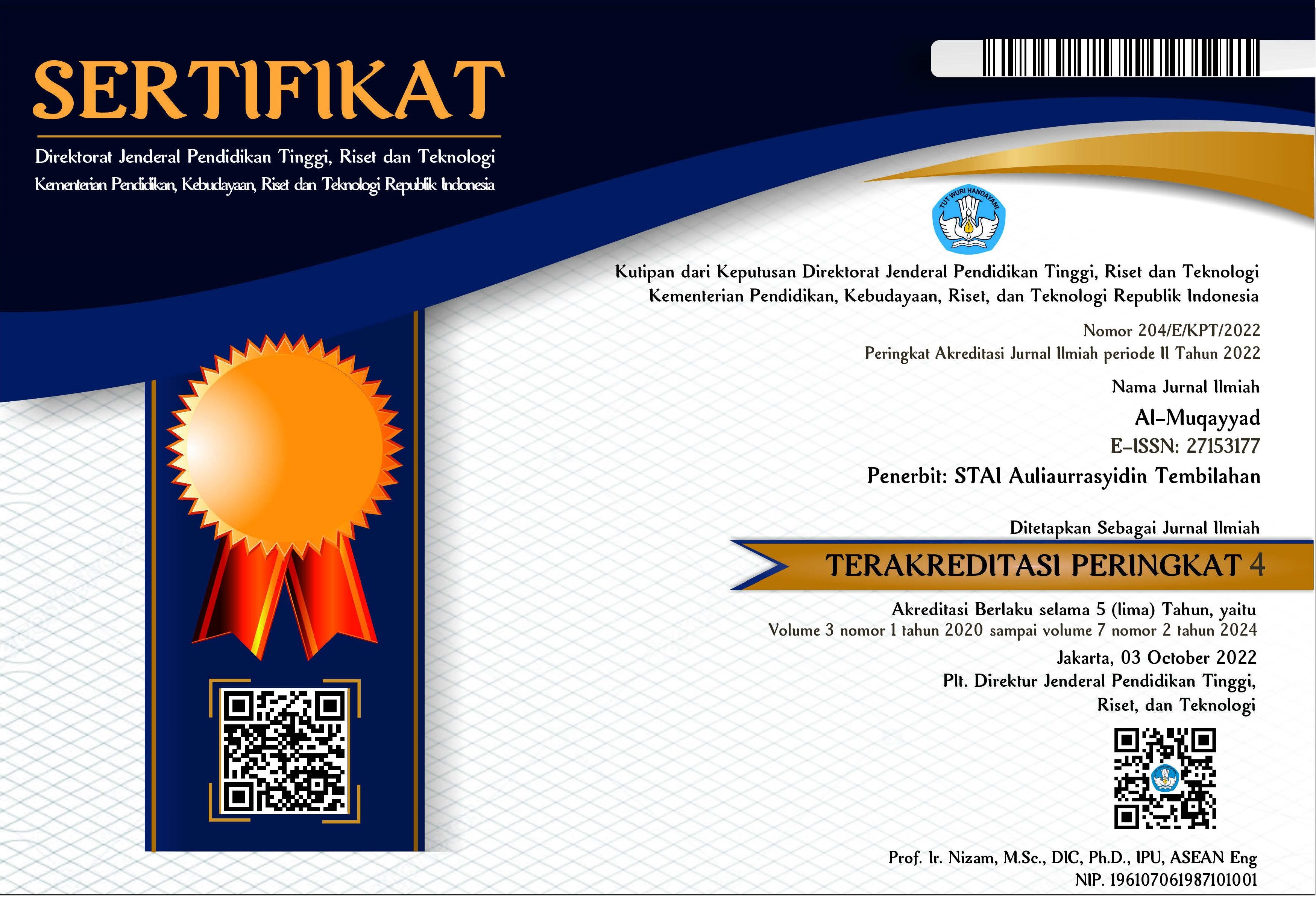Sistem Pengupahan Kebun Sawit dalam Perspektif Ekonomi Islam
DOI:
https://doi.org/10.46963/jam.v3i2.281Keywords:
Wage, Islamic Perspective, Economy, Oil Palm PlantationAbstract
The purpose of this research was to determine the wages for oil palm plantations within the Islamic economic system. Descriptive qualitative with data reduction, data presentation, and conclusions drawing was applied in this study. The results showed that the oil palm plantation wage system in determining the sharing was in accordance with the Islamic Economics principles because plantation owners discussed the number of wages to be given in advance. Regarding the time of payment procedure, the owner of the oil palm plantation did not delay the payment, the wages are given directly to workers after they have finished their routine. The oil palm plantation wage system has fulfilled the value of justice because wages were distributed based on each type of work performed. However, the provision of wages has not met the eligibility value, because the stipulated wages have not been able to meet the living needs of the workers even though the wages paid were in accordance with the minimum wages’ regulation of Indragiri Hilir Regency.
Downloads
References
Antonio, Muhammad Syafi’i. (2001). Bank Syariah dari Teori ke Praktik. Jakarta: Gema Insani.
Darmadi, Hamid. (2014). Metode Penelitian Pendidikan dan Sosial. Bandung: Alfabeta.
Musfiqon, M. (2012). Metodologi Penelitian Pendidikan. Jakarta: Prenada Media Group.
Rozalinda. (2016). Fikih Ekonomi Syariah: Prinsip dan Implementasinya pada Sektor Keuangan Syariah. Jakarta: Rajawali Pers.
Sanjaya, Wina. (2013). Penelitian Pendidikan: Jenis, Metode dan Prosedur. Jakarta: Kencana.
Sugiyono. (2016). Metode Penelitian Manajemen. Bandung: Alfabeta.
Suhendi, Hendi. (2016). Fiqh Muamalah. Jakarta: Rajawali l Pers.
Sari, S.W. (2016). Pemberian upah pekerja ditinjau dari upah minimum Kabupaten dan hukum ekonomi Islam. Ahkam: Jurnal Hukum Islam, 4(1), 123-140. https://doi.org/10.21274/ahkam.2016.4.1.123-140.
Firmansyah, R., & Fauzy, M. Q. (2017). Sistem upah minimum Kabupaten dalam perspekti Islam (Studi kasus pada upah minimum Kabupaten Sidoarjo). Jurnal Ekonomi Syariah Teori dan Terapan, 4(6), 434-448. http://dx.doi.org/10.20473/vol4iss20176pp434-448.
Kurnia, A., Wahab, A., Leu, U. U. (2018). Tinjauan ekonomi Islam atas sistem pengupahan karyawan Home Industry Meubel. Jurnal Iqtisaduna, 4(1), 123-135. https://doi.org/10.24252/iqtisaduna.v4i1.5540
Downloads
Published
Issue
Section
License
Authors who publish with this journal agree to the following terms:
1. Copyright on any article is retained by the author(s).
2. The author grants the journal, right of first publication with the work simultaneously licensed under a Creative Commons Attribution shareAlike 4.0 International License that allows others to share the work with an acknowledgment of the work’s authorship and initial publication in this journal.
3. Authors are able to enter into separate, additional contractual arrangements for the non-exclusive distribution of the journal’s published version of the work (e.g., post it to an institutional repository or publish it in a book), with an acknowledgment of its initial publication in this journal.
4. Authors are permitted and encouraged to post their work online (e.g., in institutional repositories or on their website) prior to and during the submission process, as it can lead to productive exchanges, as well as earlier and greater citation of published work.
5. The article and any associated published material is distributed under the Creative Commons Attribution-ShareAlike 4.0 International License





2.png)



